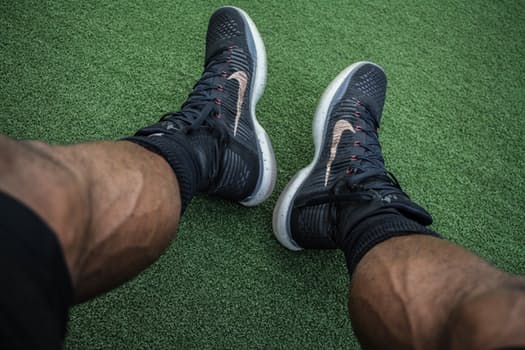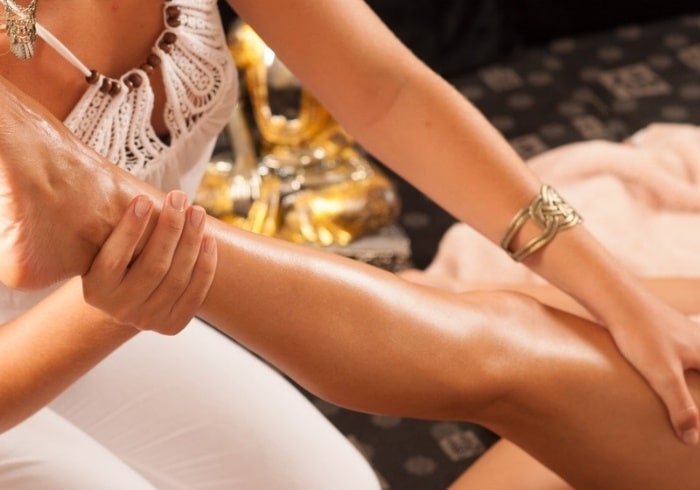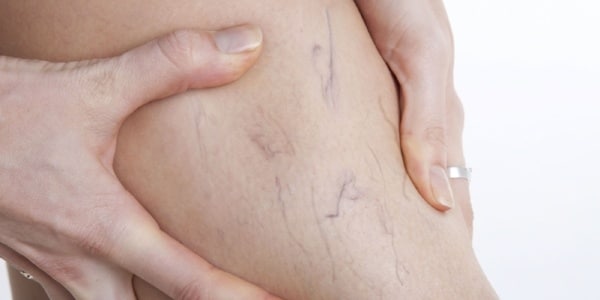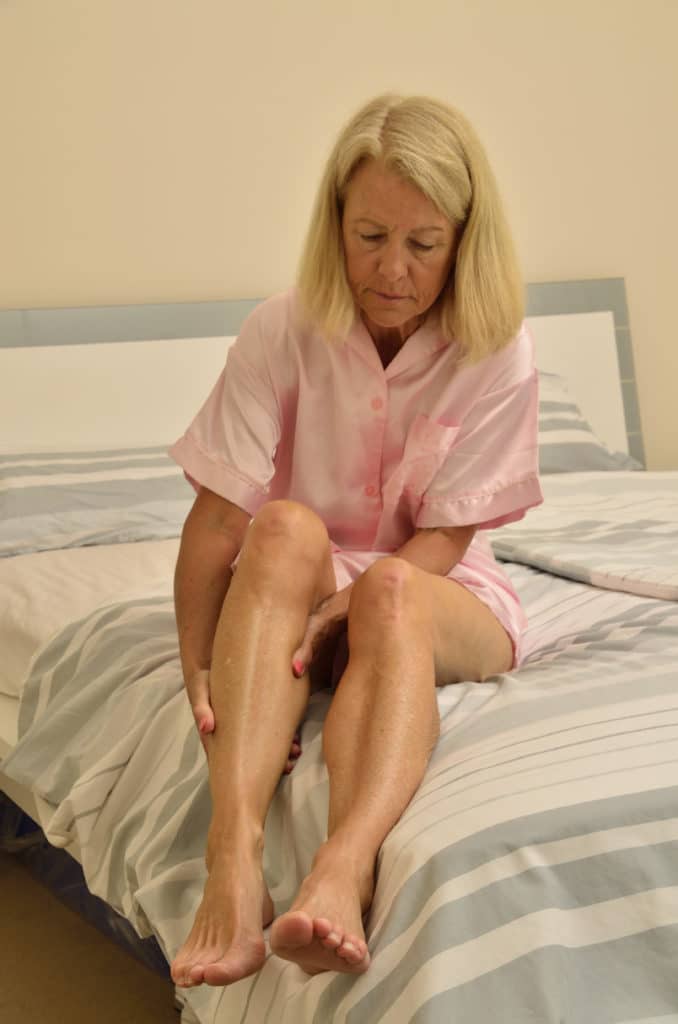Could Low Testosterone Increase the Risk of Varicose Veins in Men?

It’s a common misconception only women suffer from varicose veins, however, it is estimated that somewhere between 15% and 45% of men will develop varicose veins or venous insufficiency at some point in their lives. The exact number is unknown, primarily because a significant number of men do not seek treatment for vein disorders.
There are several factors that contribute to varicose vein formation; genetics, age, diet, exercise, stress, and weight are all important to vein health. But gender is also considered a risk factor and there are some indications that our “sex hormones” may be the culprit - particularly estrogen.
Estrogen in Men? Definitely!
While women synthesize most of their estrogen in their ovaries and other reproductive tissues, men produce estrogen through a process involving an enzyme called aromatase. Aromatase is found in many tissues including gonads, brain, adipose tissue, blood vessels, skin, and bone. Aging men sometimes have too much aromatase activity, which causes their testosterone to convert to excess estradiol, the predominant form of estrogen.
Estradiol is a known contributor to varicose vein development in pregnant women; it shrinks and impairs the function of venous valve flaps, breaks down the integrity of venous walls, and causes blood vessels to dilate, or get wider. So what does estrogen have to do with varicose veins in men? It could be a lot!
While it is too small to be clinically significant, a study published by researchers at the Universitat Leipzig in Germany noted that all of the men in their study with varicose veins had higher levels of estradiol and lower levels of testosterone (low T) compared to the men with healthy veins. What this shows is that estradiol alone is not the culprit, rather the ratio of estradiol to testosterone appears to be the determining factor.
As men age, testosterone levels naturally decline. Where a younger man’s testosterone to estrogen levels might naturally be 50:1, an older man might experience a ratio of 8:1. What the science seems to suggest is that when the ratio of estrogen to testosterone is out of whack, men are at higher risk for developing vein disorders.
Concerned About Your Vein Health?Click Here to Download a Self Assessment |
Restoring Hormone Balance is Good for Vein Health
The hormonal system helps to govern all aspects of the bodies’ functions. Its interconnectedness is complex; its balance is somewhat delicate and can be easily thrown off track. We are bombarded by stories about potential hormone disrupters and estrogen mimickers that some fear, are messing up these complex systems. Regardless of whether this is true, there are many lifestyle choices that men can make to help maintain—or restore—hormonal balance and improve their vein health.
- Maintain a healthy weight. Obesity is a significant risk factor, both for overproduction of estrogens and for varicose vein formation. Not only do the extra pounds increase strain on the vascular system, but also fat cells are particularly rich in the enzyme aromatase. The more aromatase in the system, the more testosterone will be converted to estradiol.
- Manage your stress levels. Cortisol, the hormone associated with the “fight or flight” response, increases when stress levels are high. High cortisol levels inhibit testosterone production.
- Get good quality sleep. Most testosterone is produced when we sleep. Actually, a lot of important things happen only when we are sleeping. Plus, sleep is just awesome.
- Nourish your body. It is important to eat a wide variety of whole foods in order to get the building blocks required for good hormone production and balance.
- Exercise the right amount. Moderation in all things. Studies have found that men who exercise a LOT have lower testosterone levels than their counterparts who exercise a moderate amount.
Men who develop varicose veins should consult with a qualified vein specialist to determine whether their vascular system is compromised, and what can be done to improve venous blood flow back to the heart.
Tempe-based vein specialist, Jilanne Rose of Advanced Vein Institute of Arizona, has noticed that men tend to wait until their veins get painful—or worse—before seeking treatment. Because of this tendency, she encourages everyone to look out for the vascular health of the men—and the women—in their lives.
And these days, Jilanne adds, it is easier than ever to improve vascular health. Vein treatments are less invasive, less painful, less expensive and more successful than they have ever been. Simply make an appointment with a qualified vein specialist who can precisely determine the health of your lower extremity veins, and help you make informed decisions about what treatment (if any) is right for you.
You were concerned that your varicose veins might be a symptom of chronic venous insufficiency or other blood circulation problems beneath the surface, so you consulted your qualified vein specialist. Together, you decided on your best varicose vein treatment, and you are committed to doing all that has been prescribed for your aftercare. What you…
Read MoreHere is the thing: you could have varicose veins and not even realize it. While we associate the term varicose veins with the really obvious blue and twisty bulges that make our legs look like road maps, this is not always the case. Varicose veins occur when the valves in the veins—designed to prevent the…
Read MoreUsted podría estar pensando que sus varices son sólo un problema cosmético, pero podrían ser una señal de que su salud vascular está comprometido. Si ese es el caso, y si usted está sufriendo de insuficiencia venosa (CVI), es casi seguro que su proveedor de beneficios de salud cubrirá la mayoría si no todos los…
Read MoreYou might be thinking that your varicose veins are just a cosmetic issue, but they could be a sign that your vascular health is compromised. If that is the case, and if you are suffering from venous insufficiency (CVI), it is almost certain that your health benefits provider will cover most if not all of the…
Read MoreDoes massage help varicose veins? You might be thinking that massage is a great way to deal with the ache and pain of varicose veins. It seems like it would make sense. Massage therapy is great for improving muscle tone, blood circulation, general relaxation, and overall tissue health. All of these things are important for…
Read MoreThere are a lot of myths and misconceptions when it comes to spider veins. So we asked Jilanne Rose, DPN, ANP-C, a top Metro Phoenix Vein Specialist, to dispel some of the more frequent misconceptions surrounding the cause, risk factors, and treatment of this common vein condition. Myth #1: Spider Veins are Only Cosmetic Many people…
Read MoreJilanne Rose, ANP-C, and Clinical Director at the Advanced Vein Institute of Arizona has been asked to speak at the “Your Health Matters” Seminar on Thursday, January 26th at 10am. The seminar is being hosted by Generations Senior Living in Gilbert Arizona.
Read MoreIf you think that your varicose veins hurt more at night, you are probably not imagining this. The reason why, in a word, is contrast. This might make more sense once it is explained… Especially since the advent of electrical lights, it can be easy to forget that nighttime is for rest. As daylight…
Read MoreAs a smart consumer and advocate for your own health, you have likely done your research about the variety of varicose vein treatments available, and you have probably noticed that vein procedure success rates are hard to find. Some try. There are statistics tucked into difficult-to-read research abstracts and surveys. Some reports contradict others. Others…
Read MoreIf you worry that getting a second opinion on your varicose vein treatment is rude or disrespectful—don’t! Any reputable health professional will tell you that consulting with more than one health specialist is a smart thing to do. Here are a few reasons why that is… Ensuring a proper diagnosis will reduce anxiety…
Read More


